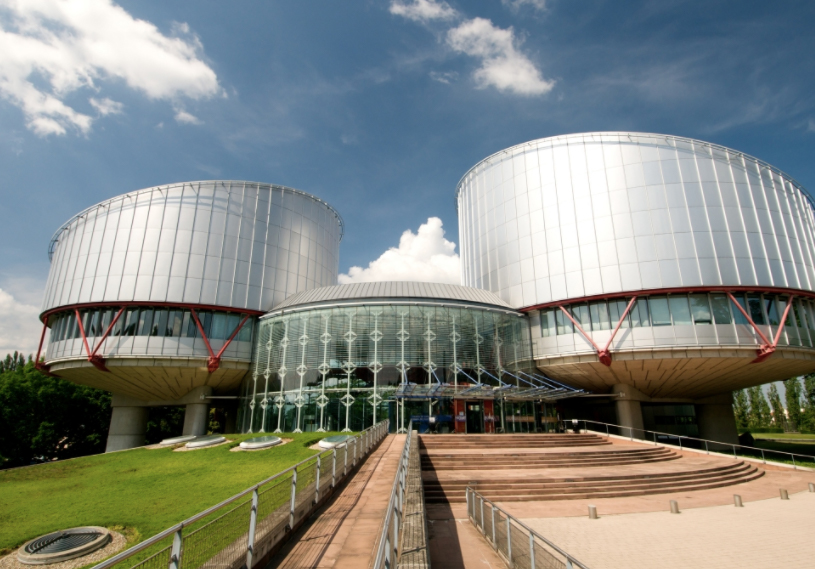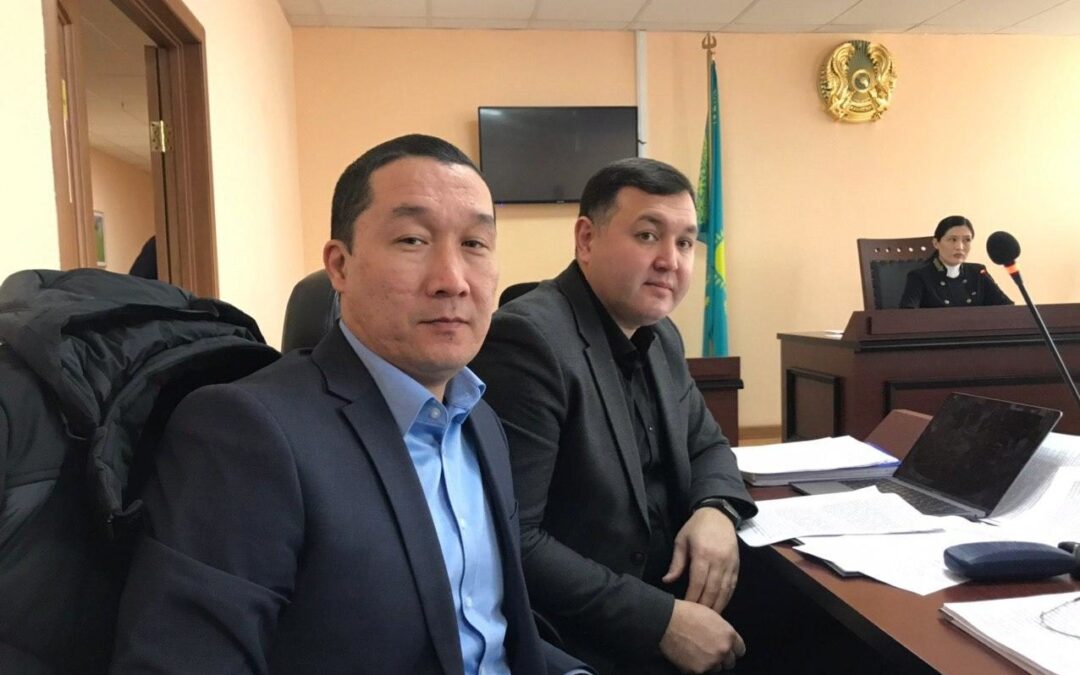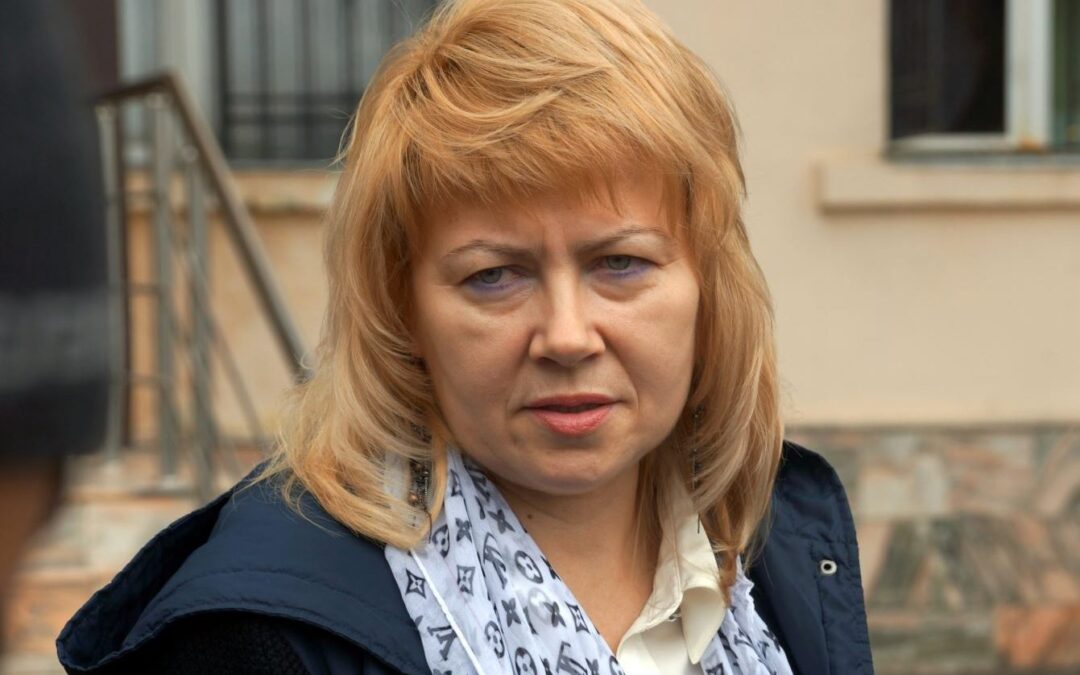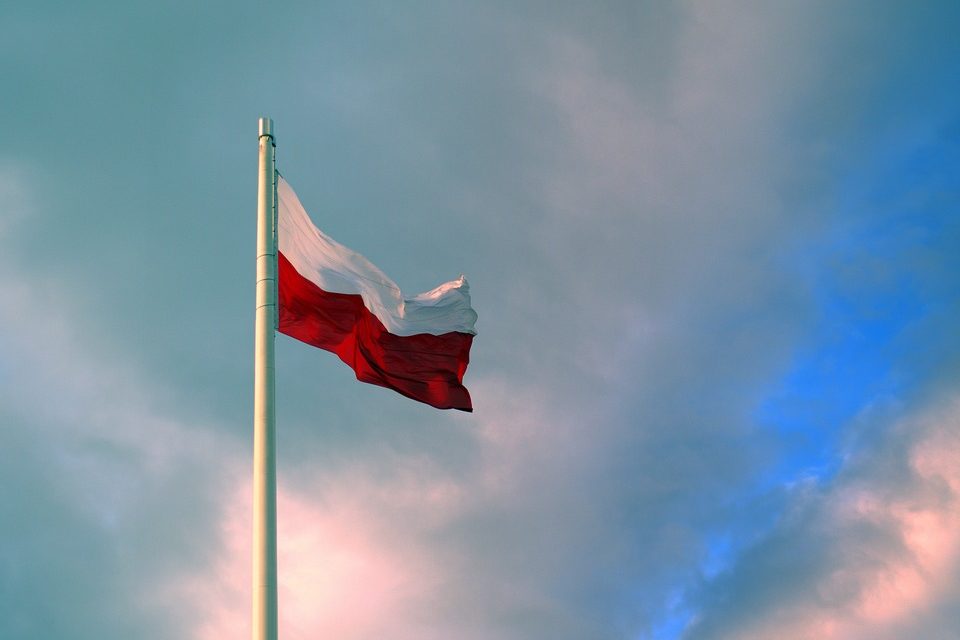
Jun 26, 2020 | Cases, News
The ICJ today welcomed the judgment by the Court in the case of Bagirov v. Azerbaijan. It found that the suspension from legal practice and subsequent disbarment of Khalid Bagirov violated his rights to freedom of expression and to respect for private life under Articles 10 and 8 of the European Convention on Human Rights (ECHR).
Khalid Bagirov’s suspension from the practice of law was based on his public criticism of ill-treatment by the police, following the wide media coverage of the death of an individual in police custody. Later he represented the victim as a lawyer in the proceedings.
His subsequent disbarment arose from his remarks about a judge made in the courtroom when representing his client in another high-profile case.
The ICJ intervened in this case as a third party, providing an evaluation of the State’s obligation to protect the right to freedom of expression of lawyers in light of international standards on independence of the lawyers and the consequences of disciplinary proceedings for lawyers’ rights under Articles 8 and 10 ECHR.
The ICJ calls on the Azerbaijani authorities to fully and promptly implement the judgment, including by taking steps to restore Khalid Bagirov as a member of the Azerbaijan Bar Association.
“Khalid Bagirov must now be reinstated as a lawyer and be allowed to resume his legal practice in Azerbaijan,” said Massimo Frigo, ICJ Senior Legal Adviser.
“But in addition, this judgment shows that measures need to be taken to address the systemic problem of unjustified disbarments of lawyers who seek to defend human rights in Azerbaijan. Reforms are needed to ensure that the disciplinary process is independent and fair and that penalties are proportionate.”
In its judgment of 25 June 2020, the Court held under Article 10 of the Convention that the reasons given by the domestic courts in support of Khalid Bagirov’s disbarment were not relevant and sufficient, and that the sanction imposed on him was disproportionate to the legitimate aim pursued, having highlighted that “the disbarment cannot but be regarded as a harsh sanction, capable of having a chilling effect on the performance by lawyers of their duties as defence counsel”.
In relation to Article 8 ECHR, the Court further noted that “…in a series of cases it has noted a pattern of arbitrary arrest, detention or other measures taken in respect of government critics, civil society activists and human rights defenders … Against this background, the Court underlines that, notwithstanding the duties, in particular, with respect to their conduct, with which all lawyers must comply, the alleged need in a democratic society for a sanction of disbarment of a lawyer in circumstances such as this would need to be supported by particularly weighty reasons” which had not been established in this case.
In respect of the suspension of the lawyer, the Government contended that the interference with Mr Bagirov’s rights to private life and freedom of expression had been prescribed by law and pursued the legitimate aims of preventing the disclosure of information received in confidence or maintaining the authority and impartiality of the judiciary.
The Court found that, he was not the victim’s lawyer when he made the impugned statements about the police, furthermore, the Court mentioned that it did not find any provision of domestic law preventing a lawyer from calling for peaceful protests against police brutality for the purpose of preventing violence.
The Court further found that while Mr Bagirov’s remarks, about a judge’s lack of capacity, were capable of being offensive, the sanction imposed on him did not struck a fair balance between the need to protect the authority of the judiciary and the need to protect his rights to private life and freedom of expression.
In this connection, the Court stated that inter alia, Mr Bagirov had confined himself to making a statement in a courtroom as a lawyer, in the context of his objections to the shortcomings of the proceedings.
Background
In addition to its intervention in Bhagirov v Azerbaijan, the ICJ has also intervened as a third party in other cases of lawyers from Azerbaijan (Hajibeyli and Aliyev v. Azerbaijan, nos. 6477/08 and 10414/08, § 54, 19 April 2018).
In 2019, the ICJ published recommendations to the Azerbaijan Bar Association on the role and independence of Lawyers,
In 2016, the ICJ published a mission report Defenceless Defenders: Systemic Problems in the Legal Profession of Azerbaijan

Jun 9, 2020 | News
As of 9 June, at least ten prominent lawyers have been arrested and criminally charged in Zimbabwe.
Among them, Advocate Thabani Mpofu (photo), Advocate Choice Damiso, Mr Tapiwa Makanza and Mr Joshua Chirambwe have been arrested and charged with the crime of defeating or obstructing the course of justice.
These lawyers are alleged to have falsified information in the papers filed in a legal matter in which they were representing a citizen, who was challenging the legality of President Mnangagwa’s decision to appoint Mr Kumbirai Hodzi as the Prosecutor General.
Mr Dumisani Dube was arrested on similar charges but his charges arise from a different case.
Mr Patrick Tererai was charged with disorderly conduct after he demanded access to his client who had been detained at a police station.
The ICJ notes that the criminal charges laid against all the six lawyers are linked to the performance of their duties as legal practitioners.
The ICJ reminds the Government of Zimbabwe of its domestic and international obligations pertaining to the right to fair trial and protection of the independence of lawyers, as underscored in the United Nations Basic Principles on the Role of Lawyers and the African Commission on Human and Peoples’ Rights Principles and Guidelines on the Right to a Fair Trial and Legal Assistance in Africa
These elaborate standards relevant to the right to a fair trial including under article 14 of the International Covenant on Civil and Political Rights (ICCPR) and article 7 of the African Charter on Human and Peoples’ Rights.
Of particular significance is Principle 16 of the UN Basic Principles which states that “Governments shall ensure that lawyers are able to perform all of their professional functions without intimidation, hindrance, harassment or improper interference;…. and [lawyers] shall not suffer, or be threatened with, prosecution or administrative, economic or other sanctions for any action taken in accordance with recognized professional duties, standards and ethics.”
In addition, Principle 20 provides that “Lawyers shall enjoy civil and penal immunity for relevant statements made in good faith in written or oral pleadings or in their professional appearances before a court, tribunal or other legal or administrative authority.” Similar provisions are included in Part I of the African Principles and Guidelines.
A lawyer would not generally be immune from criminal proceedings where allegations of perjury or intentionally providing false information to a court were well-founded.
In relation to this recent group of cases, the Law Society of Zimbabwe has expressed the concern that the arrests appear calculated to hinder the members of the profession from undertaking their professional duties.
In this context, the ICJ calls upon the Government of Zimbabwe to ensure that the right to fair trial for these lawyers is fully respected and that the criminal charges brought against these lawyers are not abused to subvert the independence of the legal profession.
“The arrest of ten lawyers within one week on criminal allegations arising from the performance of their duties as legal practitioners is a cause of concern. The state must ensure that these cases are handled fairly and that the criminal justice system is not abused to harass and intimidate lawyers who represent clients who are perceived as political opposition to the sitting government,” said ICJ Africa Director Arnold Tsunga.
Of late, Advocate Thabani Mpofu has represented opposition leader Mr Nelson Chamisa in a series of cases. These include the presidential election petition and the cases in which Mr Chamisa’s rise to the leadership of the opposition party has been challenged.
Contact
Arnold Tsunga, Director of the ICJ Africa Regional Programme, t: +263 77 728 3248, e: arnold.tsunga(a)icj.org

Feb 28, 2020 | News
The ICJ expresses concern at the decisions of 26 February of Yesil and Saryarka district courts of Nur-Sultan to disbar two lawyers, Erlan Gazymzhanov and Amanzhol Mukhamediarov, at the request of the Ministry of Justice.
These disbarments are a blow against the ability of lawyers to exercise their profession independently.
The immediate cause for the action was that the lawyers had published clips from a video recording of court proceedings in which the lawyers had acted for the defence, showing the judge behaving in an inappropriate way, on social media. The video clip was published after the proceedings had been concluded.
Following this publication, the judge was disciplined by a specialised judicial body for her behaviour during the court proceedings. At the same time, the judiciary addressed the Ministry of Justice with a request to act against the two lawyers for posting video clips on their social media pages.
The ICJ observed the court proceedings for disbarment of the lawyers in both cases. The court hearings proceeded in an orderly manner. However, the ICJ was concerned that the Press Service of the Supreme Court issued a comment on social media during the hearings that cast doubt on the impartiality of the proceedings. Furthermore, the Presidents of Yesil and Saryarka district courts of Nur-Sultan published identical comments, including the rationale for the decisions of judges that considered the cases. This happened immediately after the court decisions were pronounced to the parties. The oral explanations of decisions by judges presiding in the cases differed from the comments published by the respective presidents of the courts. The proceedings resulted in both lawyers being disbarred.
The ICJ notes with concern that these severe sanctions do not follow from legislation concerning the alleged breaches. The ICJ stresses that the principle of legality requires, among other things, that any measure imposing restrictions on human rights must be applied only as provided for by laws that are expressed clearly and unambiguously. The requirement that a measure be in accordance with law refers not only to the existence of the law but also to the quality of such law, which must be foreseeable, since a norm cannot be regarded as law unless it is formulated with sufficient precision to enable the citizen to regulate his or her conduct: he or she must be able to foresee, to a degree that is reasonable in the circumstances, the consequences which a given action may entail.
Kazakhstan legislation does not contain any prohibition of publishing videos of court hearings online, let alone prescribe disbarment for such action. The only document against which the lawyers acted were the internal rules of the Department for Judicial Administration under the Supreme Court, which do not have the status of law and which neither explicitly nor implicitly suggest disbarment for posting the videos. Neither legislation nor lawyers’ ethical rules contain any penalty for publishing video of court hearings online. Therefore, the ICJ is concerned that the sanction imposed is not adequately prescribed by national law, and as such is unforeseeable and contrary to the principle of legality.
Following the request of the Ministry of Justice to apply a specific sanction against the lawyers –termination of the right to practice law – the courts considered only this sanction. This sanction is imposed for life. Bearing in mind the legal uncertainty as to the nature of the violations and the serious consequences that they entail, this sanction appears to be disproportionate.
Bearing in mind the existence of regular disciplinary proceedings before the National Bar Association that were introduced by the new law on the advokatura in 2018, the ICJ is concerned that these procedures were not utilized in these cases, which were initiated directly before the District Courts. The Ministry of Justice did not address the Bar Association’s disciplinary bodies, which makes a sham of the disciplinary bodies of the legal profession.
“We did not hear any convincing arguments in the proceedings as to why ordinary disciplinary proceedings of the Bar Association, including those related to an alleged breach of lawyers’ ethics, have not been used”, said Temur Shakirov, ICJ Senior Legal Adviser.
“In the circumstances such as these, the role of the Bar Association in assessing the conduct of its member is essential to ensuring independence of the legal profession as required by international law and standards”, Shakirov added.
The ICJ calls on the relevant authorities to restore the licences to practice law of Amanzhol Mukhamediarov and Erlan Gazymzhanov. Furthermore, the role of the Bar Association in various aspects of its independent functioning, including the disciplinary proceedings, especially where lawyers may face a disbarment should be strengthened. To this end, the ICJ calls on the Parliament of Kazakhstan to reconsider the legislative framework and remove the possibility of any executive authority to bypass the Bar Association’s competence to evaluate professional conduct of its members, including any disbarment or other disciplinary proceedings.
Disbarment-of-Mukhamediaov-and-Gazymzhanov-2020-ENG (full PDF document with backgroud information).

Feb 7, 2020 | News
The ICJ expresses concern at today’s physical assault of a lawyer and a journalist, who arrived in Grozny to take part in the trial of blogger Islam Nukhanov.
The ICJ called on the authorities of the Russian Federation and its Chechen local authorities to investigate the attack and ensure that those responsible be brought to justice.
On 6 February, at around 22.00 lawyer Marina Dubrovina (photo) and Yelena Milashina, a journalist of Novaya Gazeta, a Russian newspaper, were beaten up by a group of young women in the lobby of the “Kontinent” Hotel in Grozny, Chechnya.
Both women suffered injuries to the face and body. Dubrovina and Milashina had come to Grozny to observe the trial of Islam Nukhanov, a blogger from the town of Kogalzm in the Tumen Oblast of the Russian Federation, charged with possession of a weapon, who has been detained by Chechen police since November 2019 after he posted a video on YouTube, with footage allegedly taken near the residence of the head of the Chechen Republic, Ramzan Kadyrov.
On 7 February, neither Dubrovina nor Milashina was admitted to the courtroom where Nukhanov was tried, due to the public and the media reportedly being excluded from the hearing.
The ICJ urges the federal and local authorities of the Russian Federation, to investigate the attack against Dubrovina and Milashina in a prompt and independent manner.
Measures should be taken to ensure that lawyers, especially when exercising their professional duties, are protected against such attacks.
Furthermore, Islam Nukhanov’s trial should be held in public, unless and until the authorities demonstrate that the circumstances of his trial require that the public and the media be excluded from it, consistent with relevant international fair trial standards.
Background
Islam Nukhanov, 27, is a blogger of Chechen origin was apprehended on 1 November 2019 in Grozny after he posted a video clip where he filmed streets and houses in Grozny, allegedly, near the residence of the head of the Chechen Republic Ramzan Kadyrov. Since his apprehension, Nukhanov has been in detention.
In 2018, the ICJ expressed concern at allegations that the arrest and detention of Oyub Titiev, the head of the Chechen branch of the Russian human rights organisation Memorial, was carried out as retaliation for his human rights activity.
In 2016, the ICJ expressed concern at the reported resignations of federal judges in the Chechen Republic of the Russian Federation following apparent pressure by the acting Head of the Republic Ramzan Kadyrov who had suggested that resignation would be the “most correct decision of their lives”
The ICJ is concerned at the regular attacks on lawyers and human rights defenders in Chechnya, which are systemic and may have the purpose of intimidating those who wish to defend human rights in the Chechen Republic of the Russian Federation.
The UN Basic Principles on the Role of Lawyers provide that “where the security of lawyers is threatened as a result of discharging their functions, they shall be adequately safeguarded by the authorities”.

Feb 5, 2020 | Advocacy, News, Open letters
ICJ Commissioners and Honorary Members today denounced the rapidly escalating rule of law crisis in Poland, after a new law was passed that would result in harassment of judges upholding the independence of the judiciary.
A group of 44 ICJ Commissioners and Honorary Members, including senior judges, lawyers and legal scholars from around the world said in their statement “it is clear that the separation of powers, the independence of the judiciary, and the capacity of Polish judges to uphold the rule of law are now severely compromised. Judges’ freedom of expression, association and assembly are under immediate threat.”
The statement
The International Commission of Jurists (ICJ), its Centre for the Independence of Judges and Lawyers (CIJL) and the undersigned Commissioners and Honorary Members of the ICJ are alarmed at the rapidly escalating rule of law crisis in Poland.
It is clear that the separation of powers, the independence of the judiciary, and the capacity of Polish judges to uphold the rule of law are now severely compromised. Judges’ freedom of expression, association and assembly are under immediate threat.
The passing by the Sejm on 23 January of the amendments to the laws on the judiciary, and their signing into law on 4 February, means that judges will be prohibited from questioning the legitimacy or institutional independence of any Polish court, even where its members have been appointed through a politically controlled process, in violation of EU and international law. Judges will face disciplinary action for denying the validity of any judicial appointment.
This law is an attempt to prevent any Polish court from upholding the independence of the judiciary, in the face of repeated legislative and government attacks on judicial independence in recent years.
This is directly contrary to the obligations of judges under the EU treaties to apply EU law, and would therefore lead to violations of Poland’s EU law obligations. It would also lead to violations of Poland’s obligations under international human rights law, since it would require judges to act contrary to their duty to uphold the right to a fair hearing before an independent and impartial tribunal.
As the Venice Commission noted in its recent opinion on the amendments, they are clearly “designed to have a nullifying effect” on recent judgments and resolutions of the Court of Justice of the EU and the Polish Supreme Court, which have called into question the validity of recent judicial appointments. As such, they do severe damage to the rule of law in Poland.
These developments follow recent legislation which has politicised the National Council of the Judiciary (NCJ) and imposed executive control of the appointment process for judges of the Supreme Court, court presidents and other judges. A powerful new Extraordinary Chamber as well as a Disciplinary Chamber of the Supreme Court, appointed under this new system, has further entrenched political control of the judiciary.
The ICJ, its undersigned Commissioners and Honorary Members, applaud the continued resolute defence of the rule of law by sections of the Polish judiciary. This has been evident in the resolution of the Supreme Court (Civil, Criminal, Labour and Social Security Divisions) of 23 January which found that recent judicial appointments meant that some Polish courts were not sufficiently independent to be legitimately constituted.
We deplore the response by President Adrzej Duda in which he suggested that judges opposing the judicial reforms on the judiciary acted out of improper self-interest.
The undersigned ICJ Commissioners and Honorary Members affirm their solidarity with Polish judges, in particular those who are currently facing abusive disciplinary or criminal proceedings for carrying out their judicial functions in accordance with the principle of judicial independence, or for exercising their freedom of expression, association or assembly as a means to defend the rule of law.
We recall that international human rights law and international standards on the judiciary require all branches of government to respect the independence of the judiciary. Furthermore, they recognise that judges have rights to freedom of expression and association and that they have a particularly important role in contributing to discussions on issues of the functioning of the judicial system and the rule of law, especially in defending the independence of the judiciary.
We call on the international community to respond to the Polish rule of law crisis in a manner appropriate to the gravity of the situation, before the damage to the Polish legal system becomes further entrenched.
In particular, we call on the European Union to urgently advance proceedings concerning Poland under Article 7 TEU, in light of the clear breach of EU law and EU fundamental values entailed by the new law, in conjunction with previous reforms, and by the government’s open defiance of decisions of the Court of Justice of the EU and the Polish Supreme Court.
Poland-Commissioners-Statement-Advocacy-Open-Letter-2020-ENG, (full text with all signatories, PDF)









